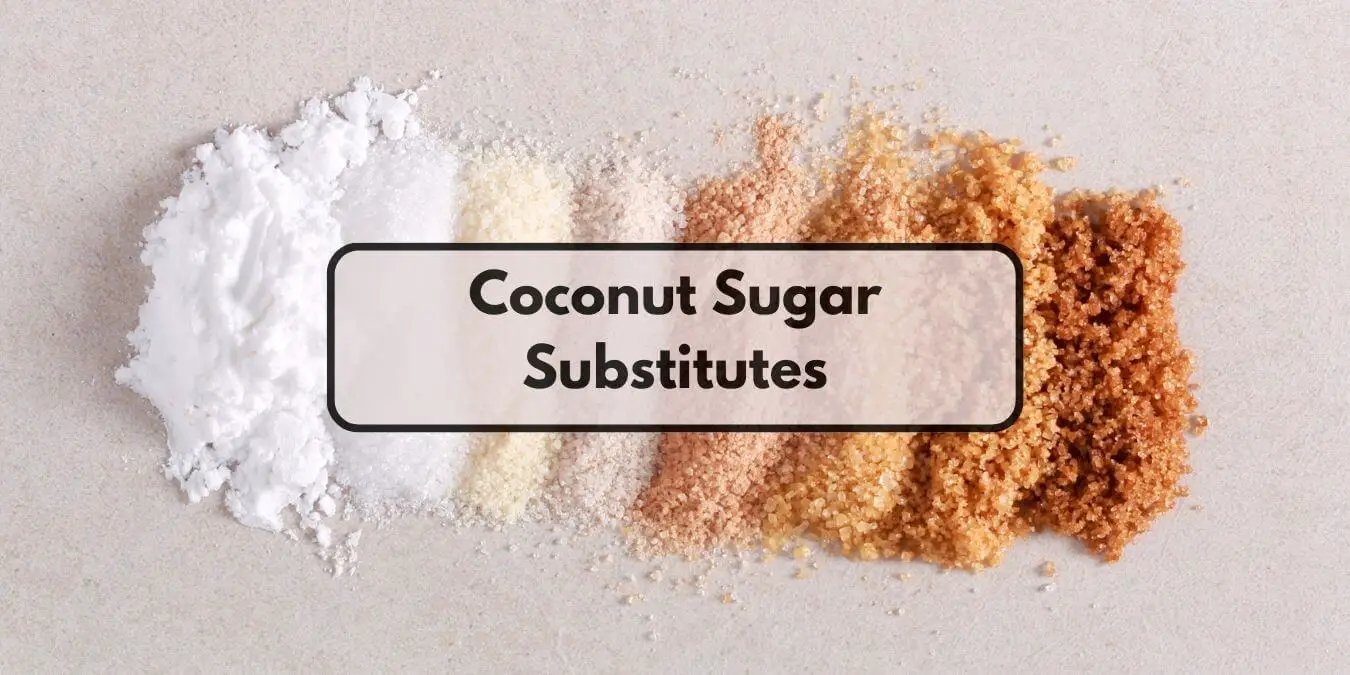For good reasons, the world is more sugar-wary today than ever before. According to an article released by Harvard Medical School, people who get over 17% of their calories from sugar have a nearly 40% chance of dying from cardiovascular disease, not to mention increased complications from diseases like diabetes. Yikes!
While overeating sugar is terrible for us, Harvard also agrees that consuming sugars closer to natural sources is better than highly processed artificial sweeteners. Many new organic, natural sugars have hit the market over the last decade, including the popular coconut sugar.
What is Coconut Sugar?
Coconut sugar is made from the sap of the coconut palm. The fluid is collected from the flowers of the coconut palm and then boiled to evaporate the water. The resulting product is brown-colored sugar with a toasty, caramel-like flavor that I adore.
Why is Coconut Sugar Popular?
Coconut sugar is popular because it is a healthy alternative to refined sugar. It is lower on the glycemic index than regular sugar, so it does not cause as drastic spikes in blood sugar levels. Coconut sugar is also a good source of vitamins and minerals, including potassium, magnesium, and zinc. Additionally, coconut sugar has a lower carbon footprint than other sweeteners because it is made from coconut palm tree sap, a renewable resource.
Why Use a Coconut Sugar Substitute?
There are some reasons why someone might not want to use coconut sugar.
- First, it is essential to note that coconut sugar is not the same as coconut water. Coconut water is the clear liquid inside a young, green coconut. It is a good source of electrolytes and has a meager calorie count. Coconut sugar, on the other hand, is made from the sap of the coconut palm tree and contains more calories and carbohydrates.
- Coconut sugar does not dissolve as quickly as table sugar. This can make it challenging in certain recipes to use in baking or cooking.
- Coconut sugar has a more robust flavor than white sugar that some people may not like.
- Lastly, the price of coconut sugar can be more cost-prohibitive than regular sugar. It can also be challenging to find in stores.
Coconut sugar is a delicious, healthy alternative to refined sugar. But what do you do when you can’t use it in your favorite sweet treats? You could always substitute another type of sugar, but not all sugars are created equal.
Coconut Sugar Substitutes
There are many possible substitutes for coconut sugar. Each of these substitutes has its unique flavor that can complement or contrast the flavors in a recipe. When substituting one of these sugars for coconut sugar, keeping the sweetness ratio the same is essential. In the suggestions below, I have provided a recommended ratio for substitution and an index for how natural the sweetener is.
Maple Syrup or Maple Sugar
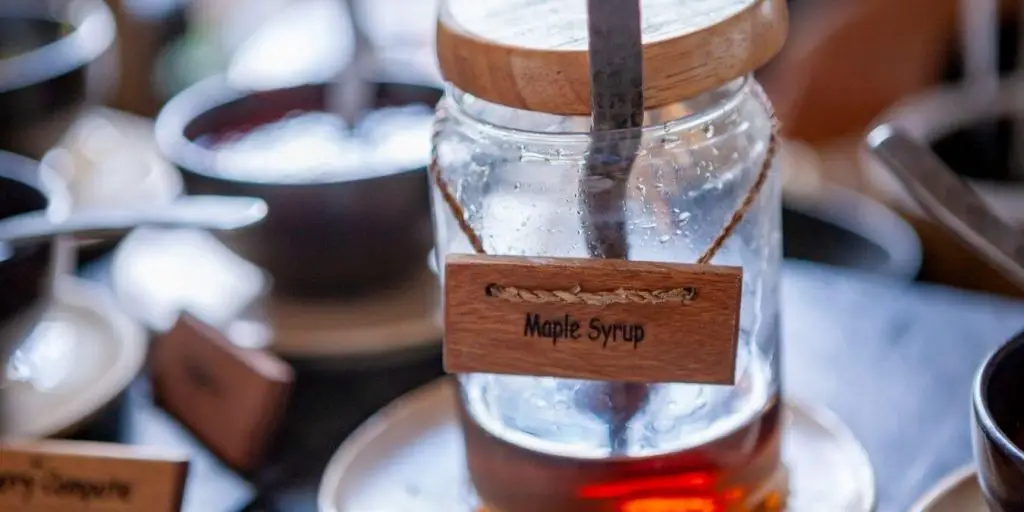
Substitution Ratio: 1:1
Closeness to Nature: 4/5, mildly processed via boiling and filtering
Maple syrup is a delicious, all-natural sweetener made from the sap of maple trees. It has a unique flavor that can enhance the taste of many foods and recipes. While coconut sugar is a popular alternative to refined sugar, it can be expensive. Maple syrup is a great way to save money and still benefit from a natural sweetener. It also has a flavor profile that is very similar to coconut sugar.
Maple sugar may be a little harder to find in your local grocery store. However it is an amazingly tasty sugar made from maple syrup. It works great as a 1:1 coconut sugar substitute.
To substitute maple syrup for coconut sugar, use a 1:1 ratio. For example, if a recipe calls for 1 cup of coconut sugar, use 1 cup of maple syrup. Remember that maple syrup is more liquid than coconut sugar, so you may need to adjust the recipe. For instance, you may need to bake goods for a longer period or add more flour to achieve the desired consistency.
Light Brown Sugar
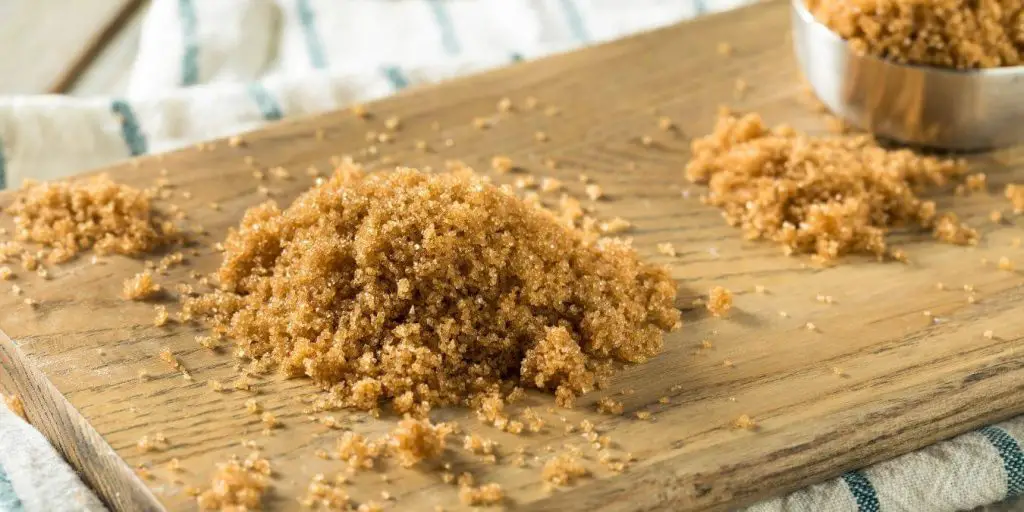
Substitution Ratio: 1:1
Closeness to Nature: 1/5, heavily processed white sugar + molasses
Light brown sugar is very similar to coconut sugar in terms of taste and texture. It’s also a bit cheaper, so it’s a great option if you’re on a budget. Plus, it’s easy to find in most grocery stores.
The downside is that brown sugar is more heavily processed and less natural than other substitutes like maple syrup. Brown sugar is made by adding molasses to white sugar. The molasses gives the sugar its brown color and its characteristic flavor. It’s something to keep in mind if you’re trying to eat healthfully.
To substitute light brown sugar for coconut sugar, use a 1:1 ratio. So, if a recipe calls for 1 cup of coconut sugar, use 1 cup of light brown sugar instead. Keep in mind that light brown sugar does have a slightly different flavor than coconut sugar. It’s molasses-y, so that it will add a slightly different flavor to your baked goods. But overall, it’s an excellent substitute for coconut sugar and will work well in most recipes.
You might also be interested in:
How to Soften Hard Brown Sugar
Sucanat
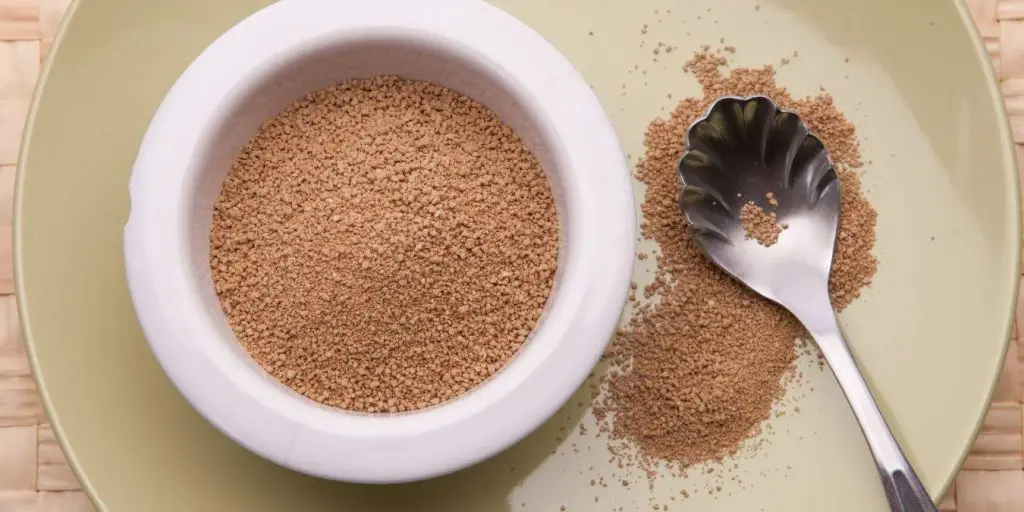
Substitution Ratio: 1:1
Closeness to Nature: 3/5, less processed than white or brown sugar
Sucanat is a type of unrefined cane sugar. It is made from sugar cane juice that has been evaporated and then ground into a granulated form. The word “sucanat” is a combination of the words “sugar” and “cane natural.”
Sucanat can be used as a replacement for coconut sugar in many recipes. It has a similar flavor to brown sugar but is less processed and has a higher molasses taste. To use it as a replacement, substitute an equal amount of sucanat for the coconut sugar called for in the recipe.
However, baking with sucanat can be challenging because it is a very dense sugar and difficult to work with. It can also be challenging to measure accurately, so it is essential to be precise when measuring. Additionally, sucanat can burn quickly, so it is crucial to watch it closely. Many chefs find running it through a food processor first makes it easier to work with and gives a more even consistency.
Palm Sugar
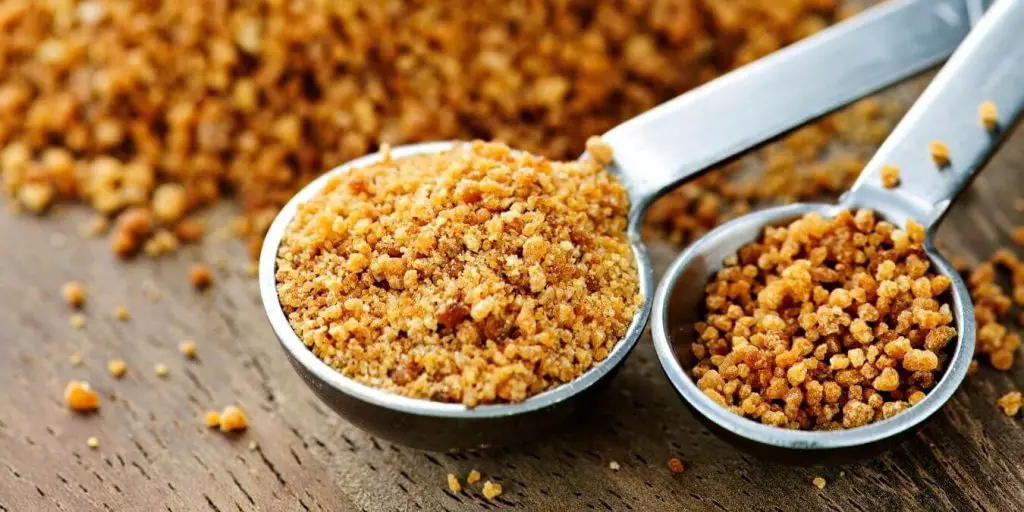
Substitution Ratio: 1:1
Closeness to Nature: 4/5, mildly processed
Palm sugar is made from the sap of certain palm trees. The fluid is collected and then boiled down to create a thick syrup. This syrup is then allowed to crystallize. Palm sugar is a unique flavor often used in Southeast Asian cuisine.
Palm sugar and coconut sugar are both made from the sap of palm trees, but they differ in taste and production. With a more intense smoky sweetness palm sugar is produced by boiling the juice until it crystallizes. Coconut sugar is less sweet and is produced by evaporating the sap over low heat.
If you’re looking to substitute palm sugar for coconut sugar in a recipe, you’ll want to use a 1:1 ratio. Remember that palm sugar will be moister than coconut sugar, so you may need to adjust your recipe.
Raw Honey
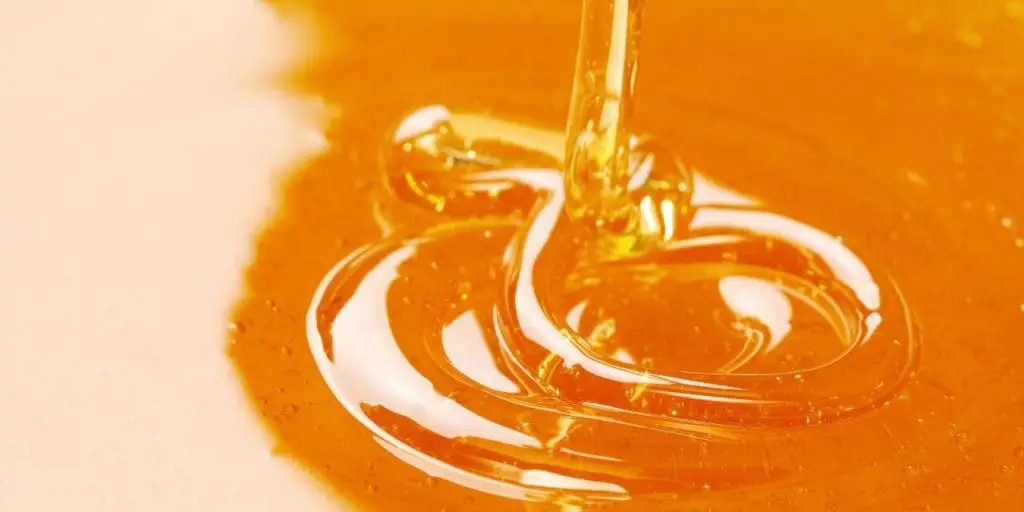
Substitution Ratio: 1:4
Closeness to Nature: 5/5, when raw and unprocessed
Raw honey is a natural product that has not been processed or pasteurized. It is made by bees from the nectar of flowers and is a source of nutrients, enzymes, and antioxidants. Raw honey has anti-inflammatory and antibacterial properties and can be used to treat a variety of ailments.
There are a few key differences between raw honey and coconut sugar flavors. For one, raw honey is much sweeter than coconut sugar. It also has a more complex flavor, with hints of floral or fruity notes, while coconut sugar is more of a toasted sweet. Raw honey is slightly sticky, while coconut sugar is more granular. Finally, raw honey is a liquid, while coconut sugar is solid.
It can be used in just about any recipe that calls for sugar or coconut sugar. And it’s delicious in tea and on toast or cornbread.
When substituting raw honey for coconut sugar, use a 1:4 ratio. This means that for every 1 cup of coconut sugar, you would use 1/4 cup of raw honey.
Monk Fruit
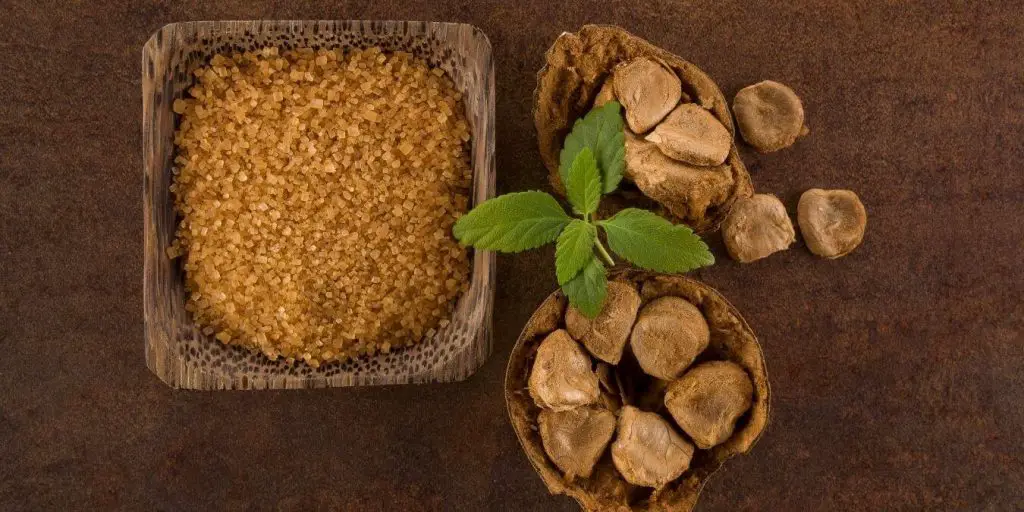
Substitution Ratio: 1:4
Closeness to Nature: 3/5, depends on the brand
Monk fruit sugar is a natural sugar alternative that is made from the extract of monk fruit. The monk fruit is a small, round fruit native to Southeast Asia and has been used in traditional Chinese medicine for centuries. The monk fruit extract is lovely, and when it is added to food or beverages, it can help reduce the amount of sugar needed.
Monk fruit sugar and coconut sugar are both unique in their ways. Monk fruit sugar is about 300 times sweeter than regular sugar, while coconut sugar is only about 50% sweeter. Some say monk fruit sugar tastes like a cross between honey and sugar, while others say it has more of a floral taste.
When substituting monk fruit sugar for coconut sugar, it is essential to use a 1:4 ratio. Monk fruit sugar is much sweeter than coconut sugar, so using this ratio will help to ensure that your baked goods turn out correctly.
Date Sugar
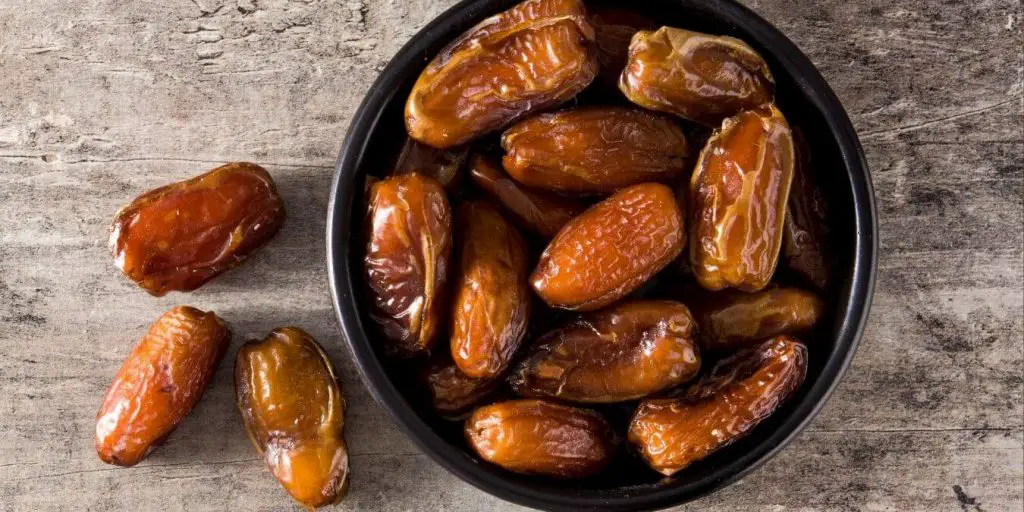
Substitution Ratio: 1:1
Closeness to Nature: 5/5, made from dates
Date sugar is a type of sugar that is made from dates. It is a natural sugar that is sweeter than regular sugar. Date sugar is made by grinding up dried dates into a powder. This powder is then used to sweeten food and drinks.
Date sugar is a good energy source and is rich in vitamins and minerals. It has a rich, sweet flavor with hints of caramel and molasses, much like coconut sugar.
Date sugar can be used in place of regular sugar in many recipes. However, it does not dissolve as granulated sugar. This means it can leave behind a detectable residue in some recipes. Using date sugar to cook can replace coconut sugar at a 1:1 ratio.
Stevia
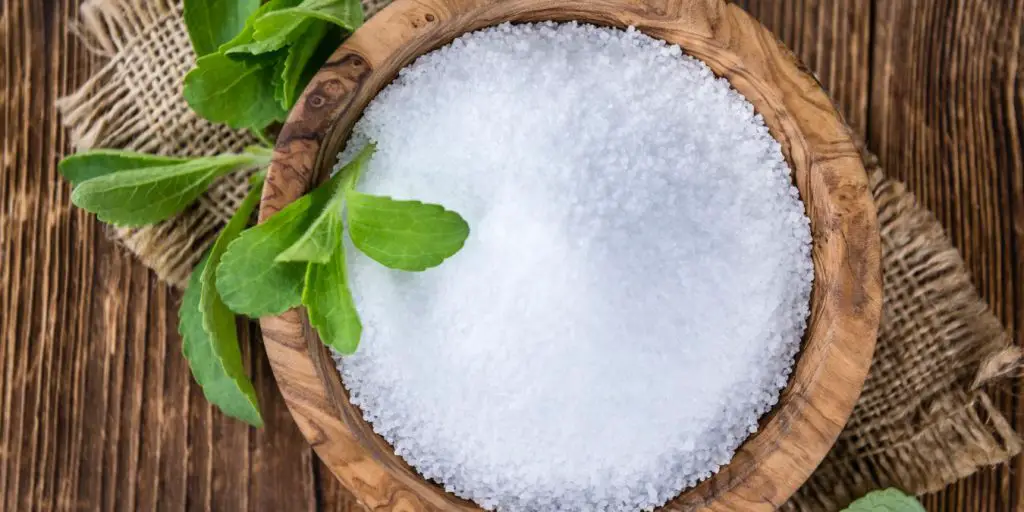
Substitution Ratio: 1:4
Closeness to Nature: 2/5, must be highly purified
Stevia is a sweetener made from the stevia plant. The stevia plant is native to South America and has been used for centuries as a sweetener. Stevia is hundreds of times sweeter than sugar and has no calories.
In its native countries, the stevia plant is dried, and the leaves are ground into a powder. This powder is then used to sweeten food and beverages. However, the stevia we buy at the grocery store is a highly purified and refined extract that is less like the plant’s natural form. This has led to debate over stevia’s healthful benefits.
Working with stevia in the kitchen can be difficult. Its powdery substance and amplified sweetness make it challenging to find the right balance in cooking, though some brands formulate it for baking. It’s best used at a 1:4 ratio when replacing coconut sugar. Most favor it as a zero-calorie replacement in beverages.
Substitutes To Avoid – Artificial and Refined Sugars
There are a few reasons why you should not substitute refined and artificial sugars for coconut sugar.
First, coconut sugar is a natural sugar that is not processed or bleached like white sugar. This means it retains many nutrients lost during processing, including vitamins, minerals, and fiber.
Coconut sugar also has a lower glycemic index than white sugar, meaning it does not cause spikes in blood sugar levels.
Finally, coconut sugar has a naturally sweet flavor that can be enjoyed without adding artificial flavors or sweeteners.
There are many dangers associated with refined and artificial sugars. They can cause weight gain, tooth decay, and cavities. They can also lead to insulin resistance and type 2 diabetes. Additionally, they can increase the risk of heart disease and stroke. Refined and artificial sugars are also known to promote inflammation throughout the body.
Using Regular Sugar As A Substitute for Coconut Sugar
With all of that out of the way, if you find yourself with no other option, you can use regular white sugar to replace coconut sugar in a 1:1 ratio. White sugar does not have the same flavor profile, so it may change your dish’s overall taste if it specifically calls for coconut sugar.
Bottom Line
Coconut sugar is a delicious, healthier alternative to refined sugar, but it sometimes must be replaced. There are many possible substitutes for coconut sugar, but it’s essential to keep the sweetness ratio the same if you use them as a substitute for refined sugar. It’s a good idea to avoid overly-refined or artificial sweeteners, which are far more damaging than natural sugars.
